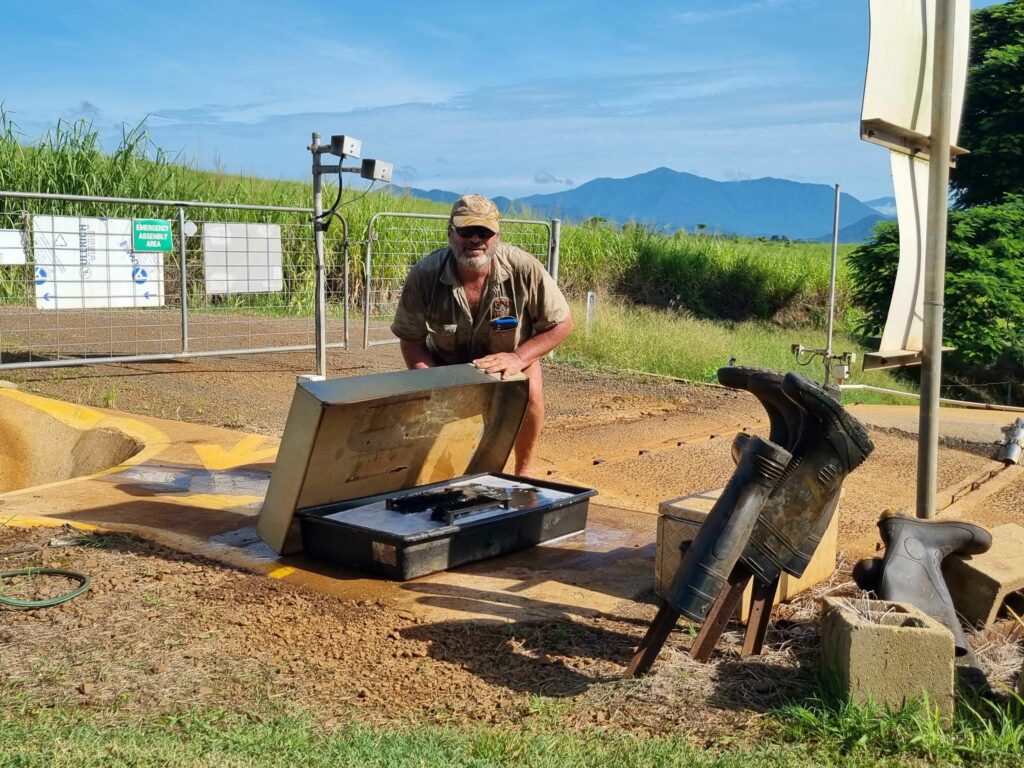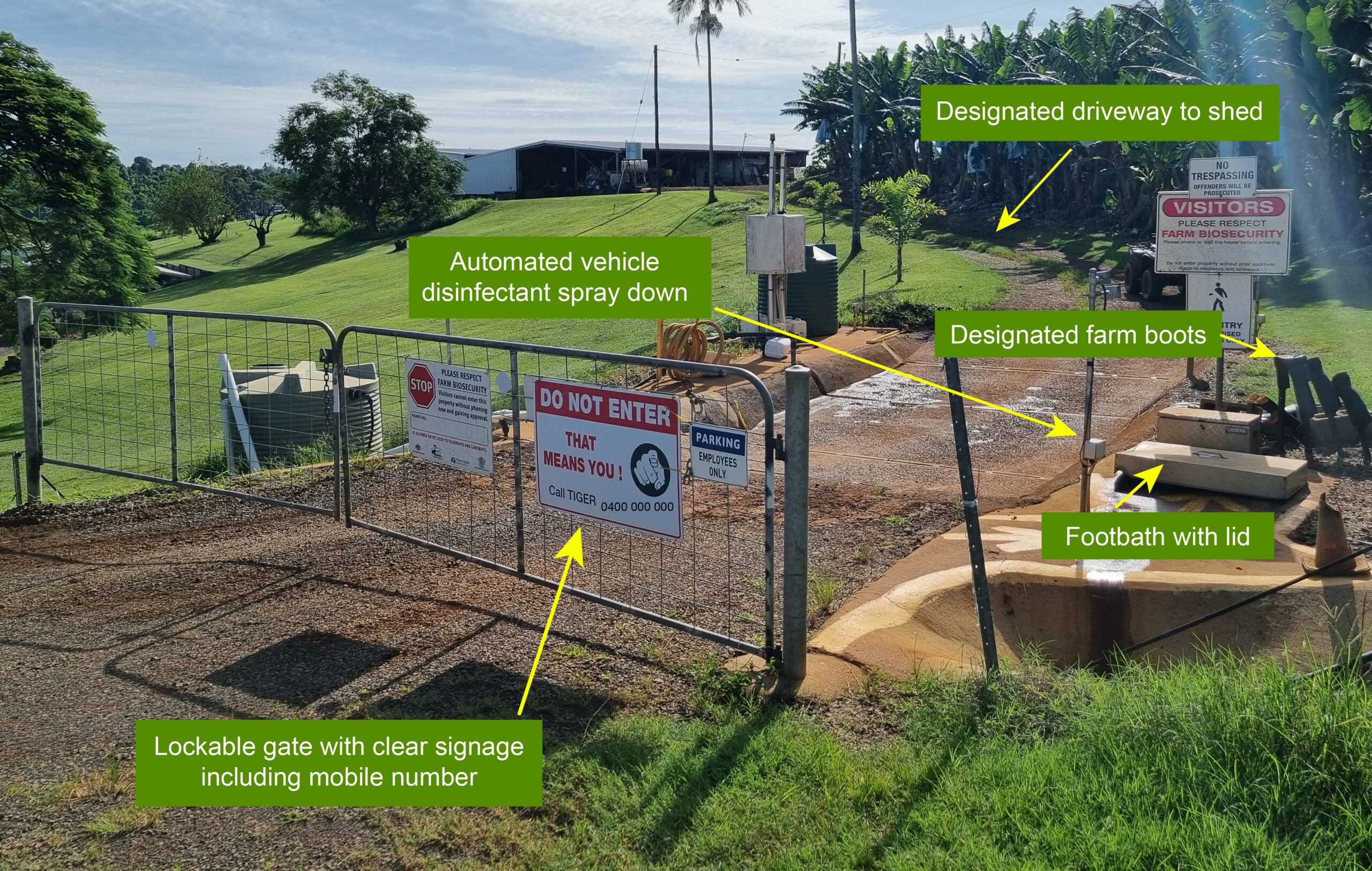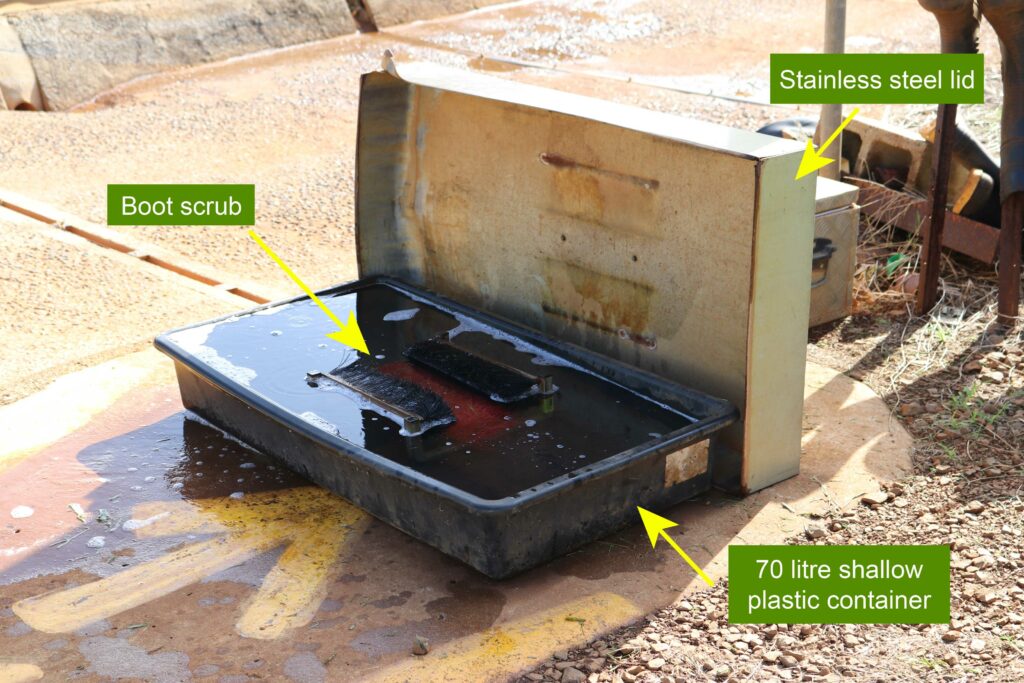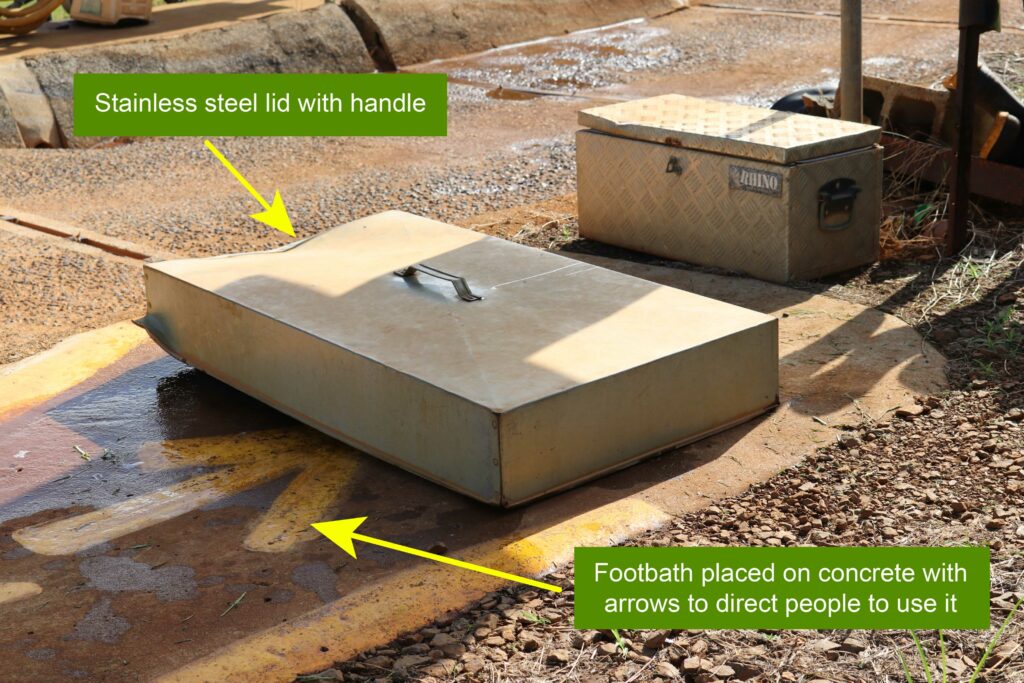Grower case study
Tiger Mereider has more than just his footbath covered
John Mereider, better known as Tiger, has been farming in the East Palmerston area for over 23 years. He is no stranger to biosecurity, having endured Panama disease race 1 on his farm when he grew Ducasse and some Lady Fingers in his early years on the block. Back then he built a drive through vehicle dip to help protect his farm. So, when Panama disease tropical race 4 was detected in Tully in 2015, Tiger didn’t hesitate in quickly putting more on-farm biosecurity practices in place to protect his farm.
This included converting his existing drive through dip into an automated disinfecting spray down facility for vehicles. Pick-up and delivery trucks accessing the packing shed drive through this automated spray facility and are disinfected with Steri-max. These vehicles movement is restricted to the driveway to the shed and turn around area.


To address the risk of the driver’s footwear, Tiger installed a footbath next to the vehicle spray down. Tiger supplies drivers with a pair of boots to change into prior to using a covered footbath.
Keeping it simple, Tiger purchased a 70 litre shallow plastic tub and a boot scrubber that he placed in the footbath. Because the footbath is not undercover, he had a stainless-steel lid built with a handle to place over the plastic tub. The lid ensures that the liquid does not evaporate when the weather is sunny or diluted when it rains. All up the covered footbath cost around $300.
Another important consideration for Tiger was placing the footbath on a concrete surface to reduce contamination and make cleaning easier. He also painted large arrows on the concrete to direct traffic.
Tiger changes the disinfectant in the footbath every 2 weeks to ensure it is effective. He has used Quaternary Ammonium test strips to check the concentration of his footbath solution and is confident that it is doing the job when changed at this frequency.
Tiger said, ‘The pickup and delivery drivers are good and always use the footbath, but I think it helps that I can see the footbath from the packing shed.’
In addition to his vehicle spray down and footbath, Tiger’s entrance to his farm is gated and clearly signed to limit unauthorised access.


Thank you to Tiger Mereider for providing his time and giving permission to use this case study for the benefit of the wider industry.
Tips on disinfectants!
Use disinfectant products containing Didecyl dimethyl ammonium chloride (DDAC) or Benzalkonium chloride (BZK). These quaternary ammonium (QA) compounds have been tested and solutions mixed as per the label rate do kill the fungal spores that cause Panama disease.
It is important to remove all soil and organic matter before applying any disinfectant product.
Easy-to-use test strips can be used to regularly test QA concentration of solutions in footbaths, spray shuttles and wash-down facilities.
Click here for information on disinfectants.
If you would like further information or assistance with setting up or improving biosecurity practices for your farm, please contact the National Banana Development and Extension Team on email betterbananas@daf.qld.gov.au or phone 07 4220 4152.
This case study has been produced as part of project BA19004 the National Banana Development and Extension Program which is funded by Hort Innovation, using the banana industry research and development levies, co-investment from the Department of Agriculture and Fisheries and contributions from the Australian Government. Hort Innovation is the grower-owned, not-for-profit research and development corporation for Australian horticulture.


